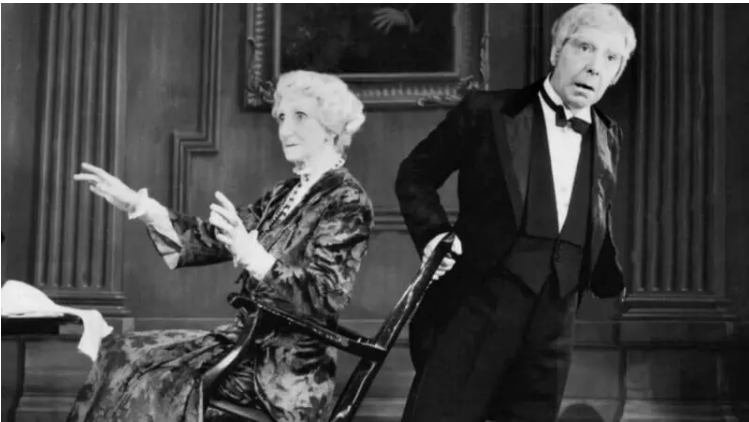Did you know this film is a German holiday tradition?
“The same procedure as every year.” A 15-minute English comedy-sketch filmed in black-and-white in the 1960s with this line has become a popular holiday tradition across Germany. The film Dinner for One (Die 90. Geburtstag) is so popular that this phrase has now become an integral part of the German language. You can see it in newspaper headlines, hear it in conversations and even see it referenced in political discussions. The film is about Miss Sophie who is celebrating her 90th birthday by throwing a dinner party for her four friends Sir Toby, Admiral von Schneider, Mr Pommeroy and Mr Winterbottom, along with the help of her butler James. Unfortunately, these friends are unable to attend the dinner as they’re long dead, which compels the butler James to play the role of all 4 guests while simultaneously serving the dinner party.

Relatively unknown to most of the English-speaking world, Dinner-For One has become a cult-classic in Germany. The film remains the highest-rated TV show in German history and went on to become the most frequently repeated TV program ever according to the Guinness Book of World Records having aired numerous times annually in Germany since 1972 on Germany’s regional public television channels. It is also a traditional festive viewing in Denmark, Sweden and a host of European countries.
Dinner for One is a New Year’s eve ritual around Germany as millions tune in to watch this skit throughout the day. It is shown more than a dozen times on the 31st of December, starting early in the morning. Dinner for One is a particularly crucial part of Germany’s festive programming, where it has been broadcast on Das Erste, a public television channel, since 1972. Around half the population still tunes in on New Year’s Eve to watch it with some Germans even recreating the meal served in the skit.
So if you find yourself in front of a TV this New Year’s eve day, tune in and catch this film to take part in a long-standing German holiday tradition.